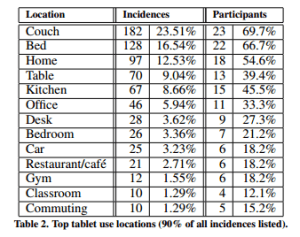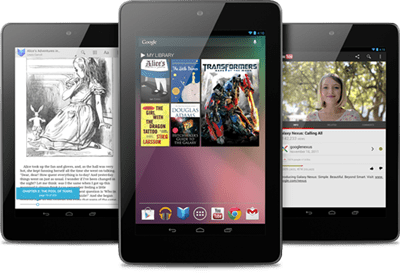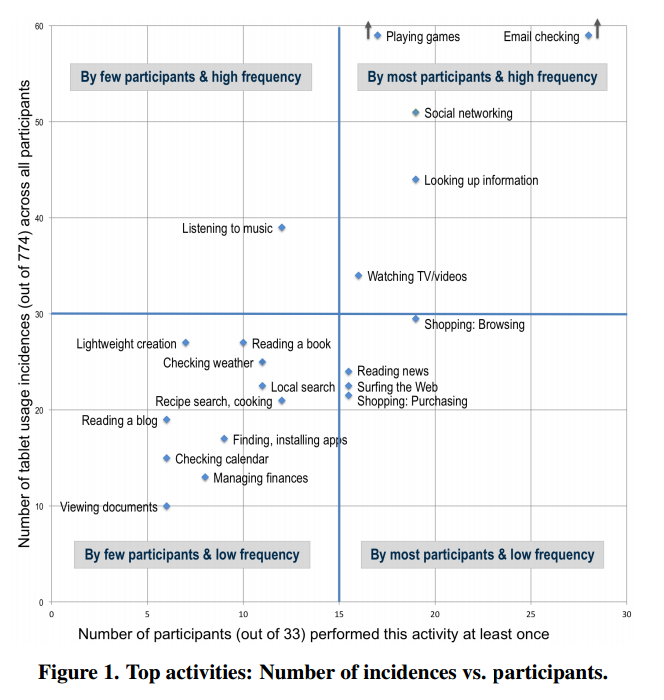Google just published a new research paper that delves into the details of how tablet owners use their devices. Using diaries, in-home interviews and contextual inquiry observations, the company’s researchers observed how 33 U.S. tablet users interacted with their devices. Some of the results are pretty straightforward (tablets are primarily used for personal purposes and to play games and check email), while others were a bit more surprising. Just as many participants used their tablets in their beds as on their couches, for example, and a surprisingly large number of tablet owners use their iPads and Nexus 7s while cooking.
 The one area that is probably the most interesting in this paper is Google’s look at what the study participants did while they where using their tablets. Watching TV, unsurprisingly, came in first with over 60% of the participants doing so, followed by eating and drinking (about 40%) and – somewhat surprisingly – cooking (27%). The participants told Google that they were using their tablets to enhance their TV experience “by extending that activity, through for example, looking up related information about the program that they were watching.” Looking at its diary study, though, the researchers also found that many of the participants just used TV as background noise while checking their email and doing other things completely unrelated to watching TV.
The one area that is probably the most interesting in this paper is Google’s look at what the study participants did while they where using their tablets. Watching TV, unsurprisingly, came in first with over 60% of the participants doing so, followed by eating and drinking (about 40%) and – somewhat surprisingly – cooking (27%). The participants told Google that they were using their tablets to enhance their TV experience “by extending that activity, through for example, looking up related information about the program that they were watching.” Looking at its diary study, though, the researchers also found that many of the participants just used TV as background noise while checking their email and doing other things completely unrelated to watching TV.
Shopping: Research On The Tablet, Purchase On The Desktop
Google, of course, has been pretty interested in getting tablet users to shop on their devices. This study, however, found that while the majority of participants did some product research on their phones (58%), many still decided to make the actual purchase on their laptops or desktops. Shopping-related activities, the researchers found, have “a higher percentage of transitions from or to other devices (30%) or the real world (17%), than many other activities.” The reasons for this, the participants told the researchers, ranged from not being signed in to their accounts on shopping sites to how difficult it is to enter payment information on tablets.
Because of this, the Googlers behind this research note, “it is important to provide a seamless experience across all of the user’s devices, so that activities started on one of their devices can easily be continued on another.”
If you are interested in learning more about this study, you can find the full paper here (PDF).

































Comment